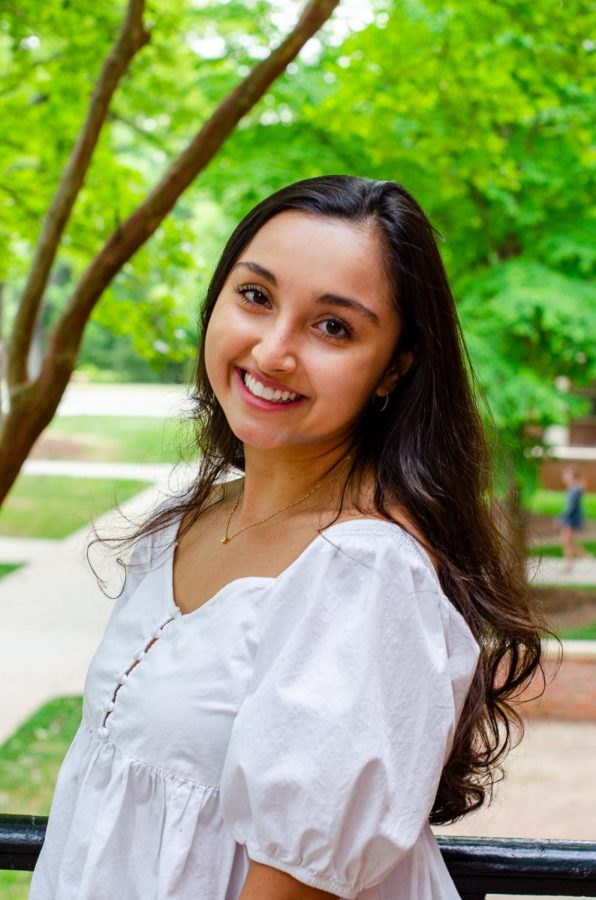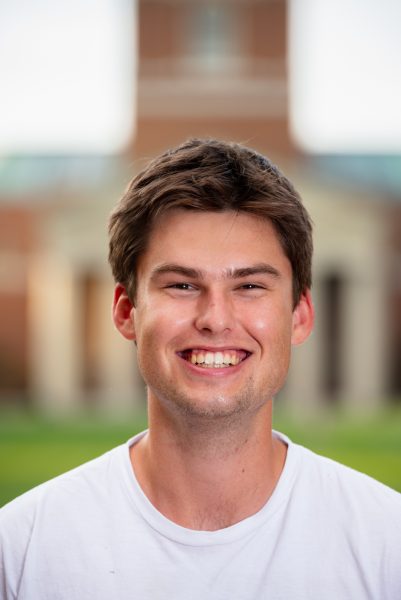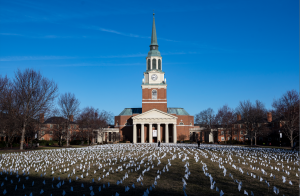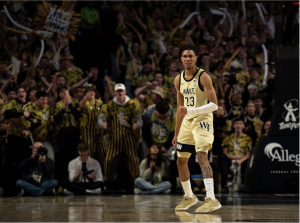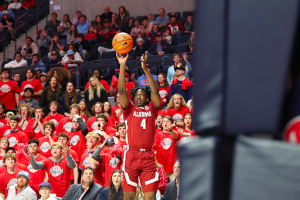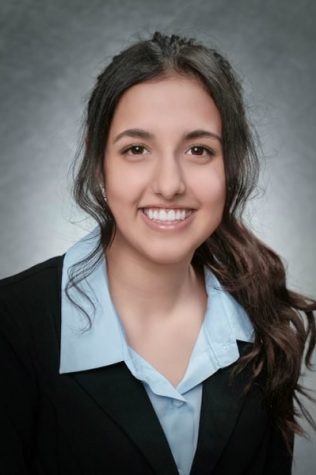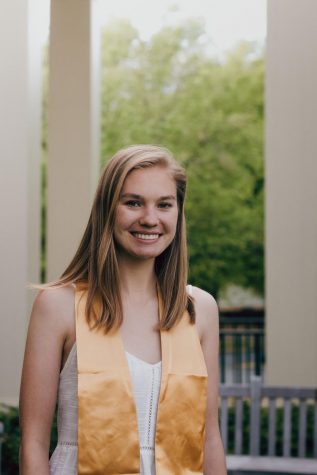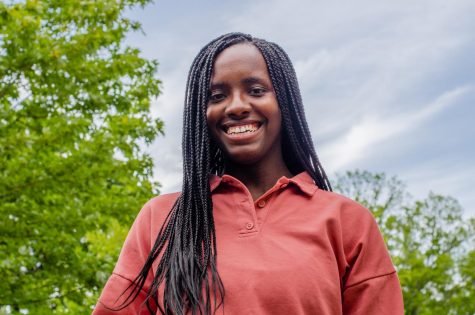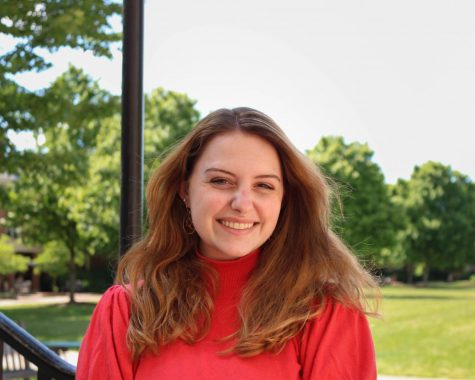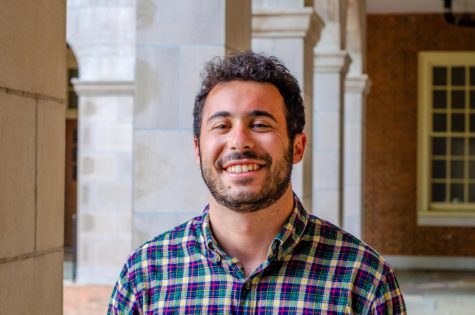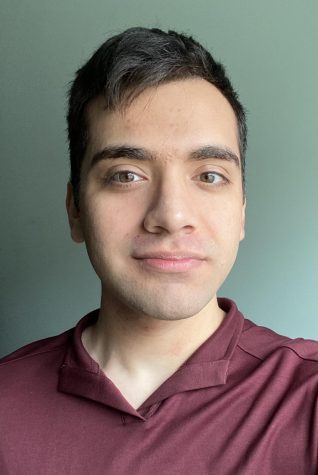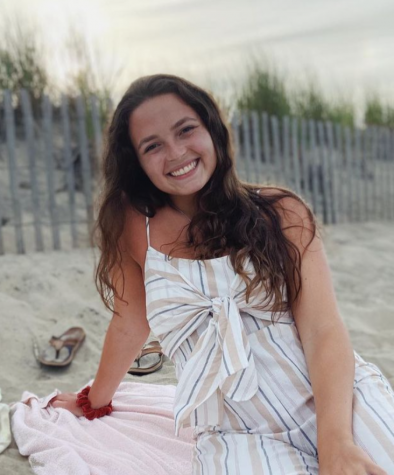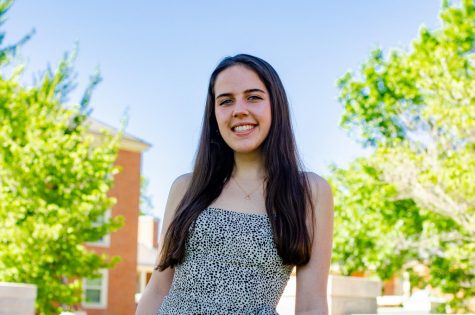Olivia Nandkeolyar – Economics
May 7, 2021
Economics is the study of production, consumption, and the transfer of wealth. So that means studying a bunch of numbers, complex graphs and seemingly repetitive models, right? Well, not quite, at least according to senior Olivia Nandkeolyar. Nandkeolyar was drawn to the real-world applications of economics and is intrigued by how monetary policy can be used to bring about positive environmental change. While the Atlanta native has always been surrounded by an economic atmosphere, studying economics wasn’t a guarantee.
“My mom has a Ph.D. in economics so I kind of thought, ‘maybe I’ll take ‘Econ 150’ and see what all the hype is about,’” Nandkeolyar said. “And then I took it and I really loved my professor. I loved how economics explains the world, how it really simplifies models and is really able to explain consumer behavior. And from that, I kind of went with it. I’ve been taking classes in [economics] ever since.”
Nandkeolyar has applied all she has learned across her classes to her thesis, a game theoretic analysis that incentivizes sustainable fashion. In non-economic jargon, she examines how governments can use policy to encourage corporations in the clothing industry to produce in a sustainable fashion. Such is fitting considering that Nandkeolyar is majoring in politics and international relations alongside Economics.
“I’m really interested in the fashion industry overall, but I think sustainable fashion, in particular, we live in an increasingly green-focused world, is really interesting to look at,” she said. “And hopefully, in the future, I can apply what I’ve studied and my research to what I end up working on.”
Exactly what this will be remains to be seen. First, Nandkeolyar will be working for CVS Health in their general management leadership program before she begins searching for MBA programs. While she is excited to take her next step professionally, she doesn’t think that she is ready to leave Wake Forest quite yet.
“It’s been such an amazing four years and I think being sad is probably the best emotion you can have because it means that it was a great experience,” Nandkeolyar said. “I don’t think I would do anything differently when I look back. But yeah, it’s definitely sad. I’m excited to see what the future holds, but I don’t want to leave yet.”
Dance has also been an important part of Nandkeolyar’s four years as a Demon Deacon. She has been a part of the Wake Forest Dance Company (she is also a dance minor) and spent time teaching ballet to the Winston-Salem community with the dance department. She also is the treasurer of Women in Economics, served as secretary and new member chair for the International Golden Key Society and was a member of Best Buddies.
“I have so many favorite memories, I would say that a lot of them are just those moments, like sitting on the quad with my friends,” she says. “Those are things I think of when I look back because I have loved the campus.
Fond college memories also include the ones she made off campus, abroad in Venice during the spring of her sophomore year, and in Copenhagen the fall of her junior year.
“I made amazing memories [while abroad], especially in the Casa Artem House [in Venice], which I think is such a unique, only-Wake-Forest kind of thing,” Nandkeolyar said. “It was amazing living on the Grand Canal, and that’s something I’ll never forget,”
As Nandkeolyar prepares for the end of her Wake Forest chapter, she noted two professors in the economics department have helped her reach this point in her academic career: “Dr. Amanda Griffith and Dr. Fred Chen, both of which were my thesis advisors. They’re just really great professors who have pushed me far outside of my comfort zone and made me a much better student.”
And for those students who still think that economics is full of only complex models, Nandkeolyar offers one final piece of advice.
“Don’t get discouraged by what you would think will be very complex,” she says. “I think at times, economics can be a little daunting, because it seems maybe impractical or a little too theoretical, but then you think about the applications. I think economics is able to explain so much more beyond consumer and firm behavior. And we can see these applications in everyday life. Think about more than just the models and you’ll be golden.”


